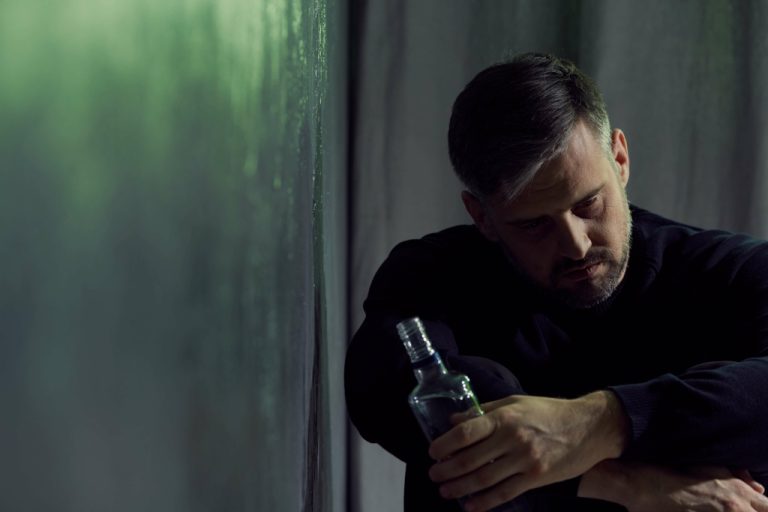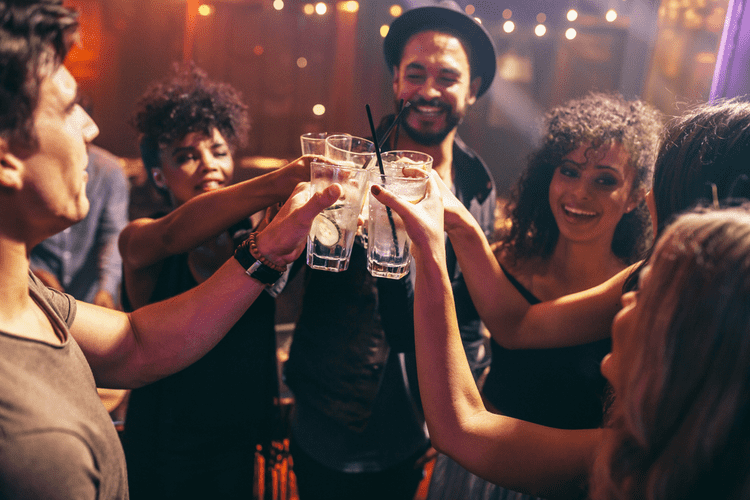Some temporary effects occur when you drink, and other effects take time to develop and can be permanent. Examples of alcohol-induced visual impairment can be found in real-life scenarios. For instance, someone who has had a few drinks at a social event may notice that their vision becomes hazy or that they struggle to read small text. It is also common for individuals who are recovering from a night of heavy drinking to experience temporary blurriness or difficulty with depth perception the next morning. These examples illustrate how alcohol can directly impact vision and contribute to temporary visual impairment. As alcohol slows the central nervous system, it also reduces the reactions of the pupils.

It can occur for a variety of reasons; anything from stress and fatigue to caffeine and dry eyes can be a trigger. The twitching usually wears off shortly after finishing drinking, but if it persists, it’s important to get your eyes checked by an optician, as it can also be a symptom of more serious conditions. While 20% of people surveyed by Drink Aware said that they didn’t drink at all, 57% of respondents had had at least one drink in the week leading up to being interviewed. People’s drinking habits can vary significantly, from binge-drinking once a week on a Saturday night out, to having a glass of wine in the evenings after a long day in the office. Infrequent alcohol consumption in small quantities isn’t something you need to worry about too much, but the problems begin once a person is consuming alcohol regularly and in larger quantities. A Journal of Ophthalmology study found that night vision gets worse after drinking in both men and women.
Kylie Jenner’s LASIK @ Maloney-Shamie Vision Institute
Alcohol abuse and addiction impact virtually every organ and system in the human body. Let’s take a look at the various ways in which excessive alcohol consumption affects the eyes and vision. In conclusion, blurry vision after drinking alcohol can be a problematic and distressing issue. However, there are several steps individuals can take to prevent or reduce its occurrence. It is important to prioritize one’s health and well-being when consuming alcohol to minimize any potential negative effects on vision. Some individuals may experience only mild blurriness, while others may have more pronounced vision problems.

The blood vessels in your eyes expand, becoming more noticeable and also potentially leading to changes in blood pressure or eye pressure. When a person’s blood alcohol content (BAC) begins to rise, they begin experiencing the effects of intoxication. There are many ways in which binge drinking and drinking in excess affects vision.
Excessive alcohol consumption also affects your eyesight
They may also be able to point you to resources to help you cut back or quit drinking to help you improve the health of your eyes and your overall well-being. If you have any eye problems you worry may be related to drinking, talk to your eye doctor. They can do a comprehensive eye exam to look for signs of cataracts, macular degeneration and other problems. Drinking large amounts of alcohol may temporarily but significantly increase the size of your pupils, though effects can vary from person to person.
These include a double vision in the morning, alcohol bags under eyes, etc. on a daily basis. And even after that, they, ironically and metaphorically, turn a blind eye to it. These minor https://ecosoberhouse.com/ factors culminate into much more dangerous long-term effects. Alcohol affects the functioning of the eye by slowing down the transmission of signals between the eye and the brain.
Dryness
Over time, alcohol consumption can actually cause permanent damage to your brain cells and neurotransmitters, further weakening the eye muscles and distorting vision. In conclusion, blurry vision after drinking alcohol is generally a temporary effect that occurs due to alcohol’s impact on the central nervous system. However, excessive alcohol consumption can lead to more severe and long-term vision-related complications. It is crucial to consume alcohol in moderation and seek medical attention if blurry vision persists or worsens. Taking care of your overall health, including your visual health, is essential for your well-being.
- No reliable sourcing indicates how many people experience vision issues due to alcohol.
- Likewise, too much alcohol causes the blood vessels in your eyes to grow, making your eyes appear red and bloodshot.
- Alcohol can slow down the transmission of these signals, resulting in blurry or distorted vision.
- We think of our patients as family and have been leaders in eye care since 1981.
Then, you can continue your treatment in our 50-bed residential facility, where you’ll receive the best in addiction treatment from qualified, multi-disciplinary staff. Partial blurry vision after drinking alcohol hospitalization and intensive outpatient programs are also available. Mohan Garikiparithi got his degree in medicine from Osmania University (University of Health Sciences).
Why does one’s vision get blurry after drinking alcohol?
There are also other potential causes of blurry vision after drinking alcohol, such as medication interactions or underlying eye conditions. Certain medications, such as antihistamines or prescription drugs, can interact with alcohol and cause blurry vision as a side effect. Additionally, individuals with underlying eye conditions, such as dry eye or astigmatism, may be more prone to experiencing blurry vision after drinking alcohol. In some cases, blurry vision after drinking alcohol may be a sign of alcohol intolerance. Alcohol intolerance is a condition in which the body is unable to properly break down and metabolize alcohol.

However, there are several steps one can take to prevent or reduce the occurrence of blurry vision after drinking. In conclusion, alcohol can have a significant impact on the eyes and can lead to blurry vision. By understanding how alcohol affects the lens, the muscles of the eyes, and the overall hydration of the eyes, individuals can take steps to mitigate the negative effects and preserve their vision.
Once the person has consumed a little alcohol, the brain relaxes that control and vision problems become apparent. However, these changes will go away once the alcohol has cleared the system. The duration of the blurriness in vision can vary depending on factors such as the amount of alcohol consumed, the individual’s tolerance, and their overall health. In general, the blurriness may last for a few hours to a day, but it can sometimes persist for longer periods. Because blackouts tend to occur at high BACs, they commonly stem from binge drinking, defined as a pattern of drinking that increases a person’s BAC to 0.08 percent or higher. This typically occurs after 4 drinks for women and 5 drinks for men—in about 2 hours.
- Generally, as alcohol is processed and eliminated from the body, your vision should gradually return to normal.
- Bloodshot eyes from drinking, for example, can usually be fixed with lubricating eye drops.
- In this article, we will explore how alcohol affects the eyes and why it can lead to blurry vision.
- These effects are usually temporary and improve as the body processes and eliminates alcohol.
- The most basic way to reduce the effects of alcohol on the eyes is to practice control.
Optic neuropathy is a condition which is developed as a result of drinking or smoking excessively. Although painless, you begin to lose your vision, struggle to differentiate between colours and gradually lose your peripheral vision. This gets progressively worse over time and long-term consumption of alcohol on a regular basis is one of the main causes. It is also thought to be contributed to by the nutritional deficiencies which come with alcohol consumption. The risk of developing age-related cataracts changes based on the amount of alcohol a person drinks. An Optometry and Vision Science study found that moderate drinking may have a protective effect against cataracts.

